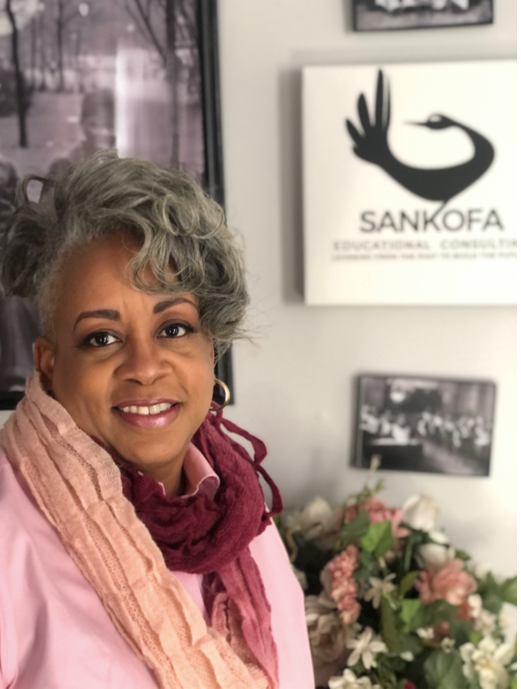
Guest blog by NJAAW Board member Dr. Charisse Smith.
In the spring of 2020, I heralded a call to action for grand-families across New Jersey. Grandparents and other older family members bravely took on the challenge of helping their students with remote or virtual learning during COVID-19.
They assisted their young students with logging onto such online learning platforms as Zoom, Google Classroom, Google Meets, Canvas and plenty of other sites dedicated to virtual instruction. Uploading, downloading, links, passwords, usernames, mousepads, iPads and screenshots had become familiar vernacular for these now tech-savvy older warriors of the web.
This school year, students are back in their classrooms and the laptops and tablets have taken a backseat to in-person instruction.
Additional challenges for in-person learning
Many students are finding it difficult to adjust to a very long and very different type of school day. Masking, social distancing, quarantining and other COVID-19 school protocols have made the school day especially demanding-particularly for the younger ones who had not benefited from any previous type of in-school experience.
Those students who have had the in-person experience of a “normal” school day are also finding it challenging to navigate through an extra set of expectations — wearing masks all day, not sharing materials and sitting socially distanced from friends in the cafeteria — in addition to catching up to grade-level expectations.
Since students returned to school, educators and parents have expressed concern about learning loss due to the shortcomings of virtual learning and the lack of “real school” social interactions.
To help students adjust to the social and academic demands, schools have added an additional layer of supportive learning opportunities to the student day: Social Emotional Learning (SEL).
What is Social Emotional Learning?
According to the Collaborative for Academic, Social and Emotional Learning (CASEL), SEL is “the process through which all young people and adults acquire and apply the knowledge, skills and attitudes to develop healthy identities, manage emotion, and achieve personal and collective goals, feel and show empathy for others, establish and maintain supportive relationships and make responsible and caring decisions.”
There are public school districts in NJ — Westfield, Deptford, Clayton, Paulsboro, Readington, Eatontown and Jackson among them — that have adopted SEL curricula, which address student self- and social-awareness, self-management, responsible decision-making and relationship skills.
When schools are committed to the tenets of an SEL curriculum, the strategic instructional opportunities and practices enhance a positive classroom climate and help students become self-aware, caring, responsible and engaged lifelong learners.
I am again heralding the call to our Grand-families–partner up!
As grand-families and caregivers, you can also support in-school SEL by finding out about your school’s SEL curriculum and becoming more involved with your student’s school.
The benefits of grand-family/school partnerships
Grand-families partnering with schools that support SEL provide a win-win for the entire school community. Intergenerational older adult/student relationships provide wonderful opportunities for SEL and development.
Stanford University psychology professor and Founding Director of the Stanford Center on Longevity, Laura Carstensen, states that as we age, our brains improve in the areas of complex problem-solving and emotional intelligence. Both of these are great qualities of a great mentor! Children can benefit from the counseling and experiences older adults can provide.
Carstensen points out that older adults are exceptionally suited to meet the needs of children because both welcome meaningful, productive activity and engagement. Older adults can help children develop self-awareness and empathetic skills that are essential to building healthy relationships in school by cultivating their relationships at home; identifying, communicating and acknowledging emotions, and modeling empathy and coping skills.
Our students thrive when schools and all families partner together. As one of the first in my school community to see students arriving at school, I have observed our older adult family members walking young students to their class lines outside on the blacktop playground. I’ve also heard their morning conversations, which have included making sure that the students are respectful toward their friends when joining their class line and ensuring that they say “good morning” to classmates.
At lunchtime, my first-graders are eager for me to read their “love notes” — words of encouragement and daily affirmations from their grandmas and abuelitas tucked inside their tiny lunch boxes. These are definitely warm-and-fuzzy moments, even for me!
Grand-families, please help our schools!
Schools have room for improvement. Our schools can be consistent in creating spaces where families feel welcome to share their culture, language, wisdom and skills.
Reach out to your child’s school, teacher or principal to develop a partnership. Join your school’s Parent Teacher Association (PTA) or Parent Association. The skills, wisdom, and time you volunteer may make a difference in how your young family member connects socially and emotionally to school.
Let’s continue this course of positive relationship building and support because we all are family–parents, students, grand-family members and educators. Thank you!
Click here for my list of ideas and resources.

NJAAW Board member Dr. Charisse Smith, principal consultant and owner of Sankofa Educational Consulting, LLC, in Trenton, NJ, is the new Curriculum Supervisor for Social Studies, kindergarten through grade 6, for Trenton Public Schools. A member of the National Sorority of Phi Delta Kappa Inc. – Pi Chapter, an organization of professional educators, she and her chapter sisters focus their volunteer efforts on youth, education and service to the Greater Trenton area community. Smith and her husband, Steven, are the proud parents of Raven and Satchel. She is also a caregiver for her parents, Richard and Saundra.

